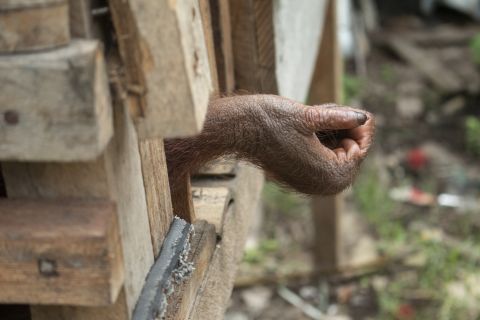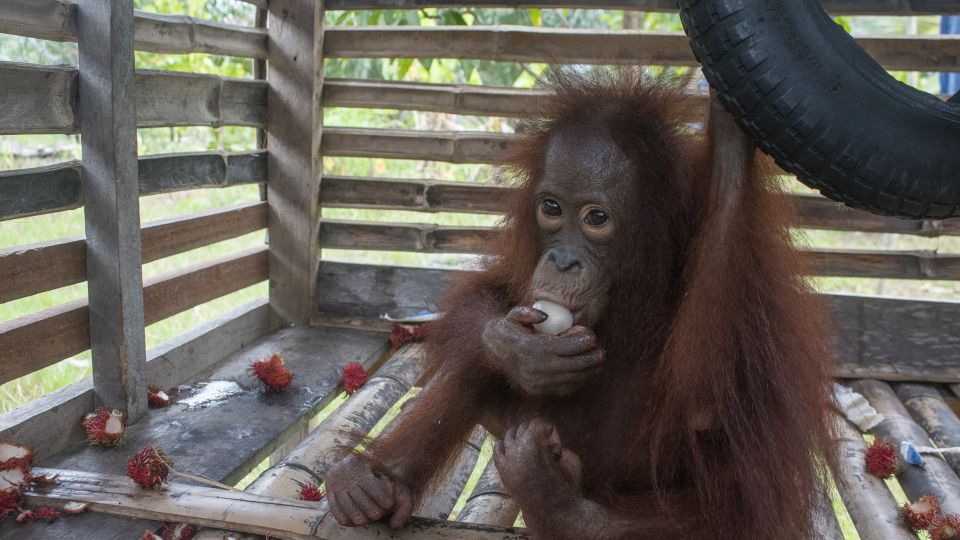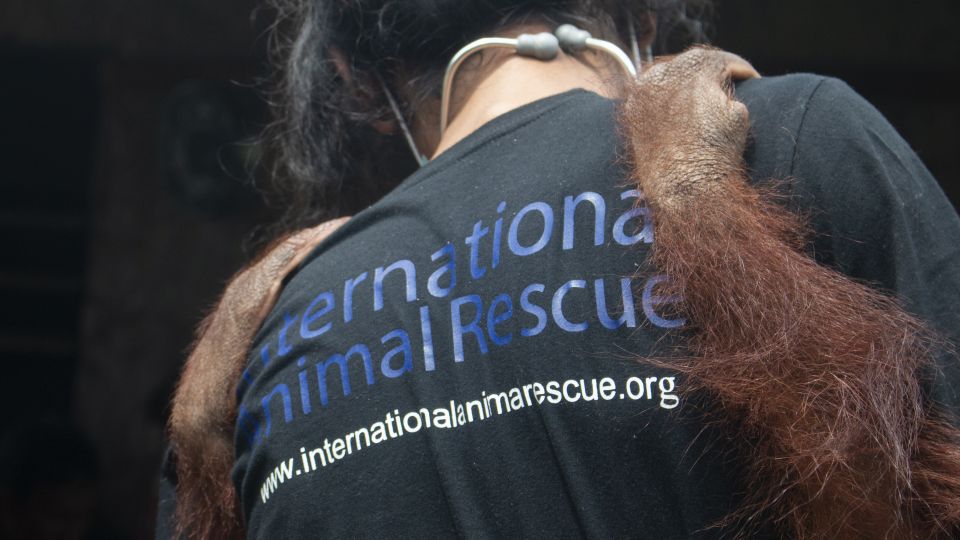
Our team in West Borneo has joined with Forestry officials to rescue a young female orangutan that had been kept in a crate for nearly four years. The orangutan was being kept as a pet in the small Hamlet of Punai Jaya, Durian Sebatang Village in Seponti District, Ketapang Regency in West Borneo. She was rescued by a team from IAR Indonesia and the Nature Conservation Agency (BKSDA) of West Kalimantan, Ketapang Region.
The female orangutan named Senandung was a victim of the illegal wildlife trade. She was being kept by a local man called Aliansah who admitted finding her in 2015 in the palm oil garden close to his house and then keeping her as a pet. He kept Senandung in a wooden cage measuring no more than 2m x 1.5 m and fed her on rice and fruits. Aliansah claimed that he had previously tried to set Senandung free in the forest but she had returned to his house.
Residents in Durian Sebatang Village reported the existence of the orangutan to International Animal Rescue who sent a team to verify the information. After our team confirmed that there was an orangutan being kept illegally in the village a joint rescue team from IAR and the West Kalimantan BKSDA set off to rescue her.
From the initial examination by IAR’s vet, Senandung seemed healthy, although she was recovering from a cold. Judging by her teeth, she was estimated to be about four years old.

The rescue team transported Senandung to IAR’s Orangutan Conservation Centre where she was immediately put in quarantine for eight weeks. During this time, Senandung will undergo further tests and examination by IAR’s medical team to make sure she isn’t carrying any contagious diseases that could jeopardise the health of the other orangutans at the centre.
Although it is illegal to keep an orangutan as a pet, the practice is still common in Ketapang District, particularly in very remote rural areas. Normally baby orangutans stay with their mothers until they are between six and eight years old. So if a baby orangutan like Senandung is without its mother, it is highly likely that that baby’s mother has been killed.
Karmele L Sanchez, Programme Director of IAR Indonesia, said: “It’s time everyone who keeps an orangutan realises that, if they persist in breaking the law, orangutans will become extinct. Anyone who has an orangutan in their possession should immediately report it to the authorities. The risk of disease transmission from animal to human or vice versa is very high in cases where orangutans are kept as pets. And if people are reluctant to hand the animals over, then the law must be enforced to make them comply.

“The rehabilitation process to prepare an orangutan for reintroduction into its natural habitat is complex and costly – and it takes a great deal of time. It takes years before baby orangutans are ready for release. Sadly, some of the pet orangutans we rescue are already too old to return to the wild and so they have to remain with us forever and never return to their rightful home. “
Sadtata Noor Adirahmanta, the Head of the BKSDA in West Kalimantan, said: “We still often find orangutans being kept as pets in the community, even though considerable effort is being put into awareness-raising, education and campaigning. The threat to the survival and conservation of the orangutan is growing all the time and there is an urgent need to increase public awareness of the fact that it is not acceptable or legal to keep an orangutan as a pet. We are very grateful to International Animal Rescue and others who are working together to rescue and conserve orangutans.
“Orangutans need the forest, the forest needs orangutans – and as humans we need both the forest and the orangutans,” he concluded.

